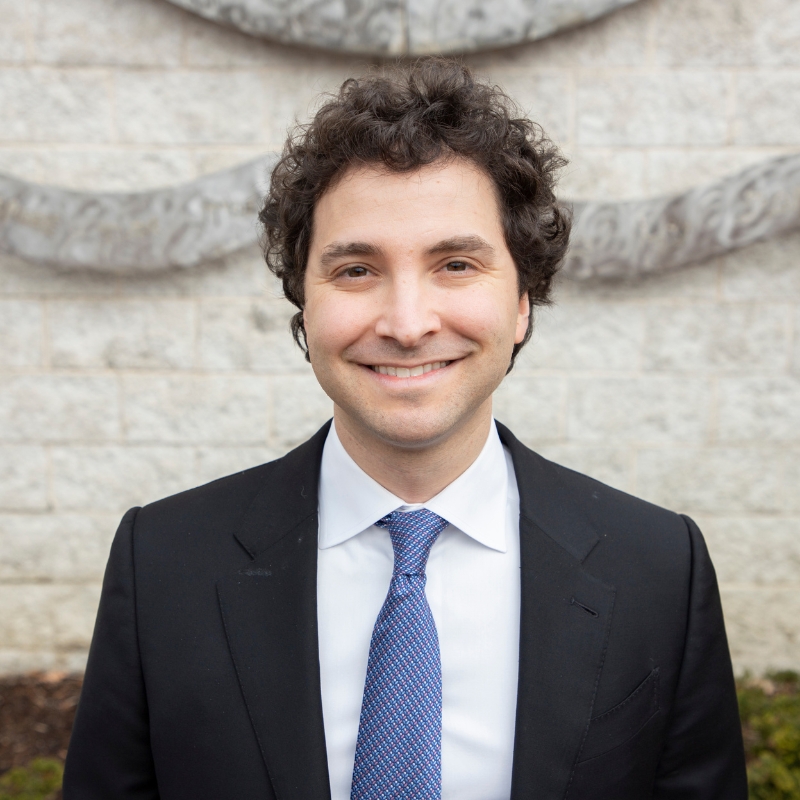There is a certain cognitive dissonance in the presence of a talking donkey. On one hand, it’s automatically the coolest experience ever. On the other hand, the coolness of the experience becomes limited when a donkey speaks because we don’t recognize what’s in front of us.
As we celebrated the Fourth of July this year, many of us were experiencing another sort of cognitive dissonance. On one hand, there is so much to celebrate. How fortunate we are to have the rights, freedoms, and privileges that America uniquely affords. On the other hand, there is so much brokenness. The number of Americans without adequate food or healthcare is on the rise. Antisemitism is tearing through our communities. The climate crisis looms right in front of us, as the natural world tries to tell us something we seem unable, or unwilling, to see. And in perhaps the most stark example of our cognitive dissonance, we celebrate the immigrants who founded our country, while today, we are at war with ourselves over how to treat the immigrants in our midst.
On a day that marks our independence, we are unable to declare our independence from the tyranny of poverty and hunger, from inequality, and — perhaps most dangerous of all — from resigned indifference. So I look for inspiration where I can find it. Sometimes I find it in bumper stickers. You know who makes a nice bumper sticker? T’ruah. “Resisting Tyrants Since Pharaoh.” I’m proud to slap that onto my electric car and all its incentives, may they rest in peace. This week’s Torah portion, Balak, refocuses our attention on the sacred Jewish calling: How do we resist the tyranny of hopelessness?
Find more resources on Balak.
Bilaam, prophet-for-hire, is commissioned by Balak, king of Moab, to curse the Israelites, who have grown too numerous for comfort. This language recalls Pharaoh, who sees how numerous the Israelites have become and feels similarly threatened. The midrash goes so far as to say that Bilaam was actually one of Pharaoh’s advisors. Pharaoh, who relies on his magicians, has Bilaam curse the Israelites, that they might remain enslaved in Egypt forever. In this week’s Torah portion, under the guise of piety, Bilaam now sets out on a self-serving venture for fame and fortune, at the expense of God’s people, clearly corrupting God’s will.
Overlooking the camp of the Israelites, Bilaam opens his mouth, but instead of a curse, blessing pours out of him: “Mah tovu…” — “How goodly are your tents, O Jacob, your dwelling places, O Israel.” (Numbers 24:5) Why does Bilaam fail to curse the people? Earlier in the Book of Numbers, the Israelites receive their marching orders from God and organize themselves in formation around the unique banners of their ancestral tribes, with the Mishkan — the symbol of God’s dwelling among them — at the center. So when we read this week, “And Bilaam lifted up his eyes…” (Numbers 24:2), contemporary Torah scholar Avivah Zornberg explains that when he did, he saw their flags. She writes, “…Bilaam looked at them in resentment because he could not touch them… He began speaking, ‘Who can touch these people who know their [ancestors] and their families?’”
Find more commentaries on social justice, leadership, and philosophy.
Recognizing who we truly are is our best resistance against tyranny. Knowing what lies in front of us, cognitive dissonance-and-all, we proudly wave the flag of Israel in May, the rainbow flag in June, the Stars and Stripes in July, because we recognize the promise of the miraculous ideas these banners represent. The Israelites arrange themselves around the Mishkan because the attempt to create a society in which the presence of God dwells has always been our beating heart. No matter the dictates of the king, true prophets recognize when they are in the presence of God or God’s emissary. We know who we are. These are the words of comfort from Parshat Balak this week. There’s a remarkable strength in recognizing who we are. As we build community around our most cherished values, may our flags manifest the ideals of freedom and independence from the curse of tyranny around the world. This is the strength that transforms curse into blessing in the end.
Rabbi Joshua Jacobs received his rabbinic ordination from the Ziegler School, where he was a Wexner fellow. Born in Los Angeles, he pursued writing for television, only to learn that each episode he wrote was a thinly veiled d’var Torah. A firm believer that storytelling is the most powerful vehicle for good ideas, he is fully committed to the Jewish story, seeking a life of service to people and conversation with God. Rabbi Joshua Jacobs joined B’nai Jeshurun Congregation in Cleveland, OH, as assistant rabbi in 2023, where he proudly serves alongside his spouse, Rabbi Alex Rosenbaum. They live in Cleveland with their daughter, Noa, and dog, Tula.

